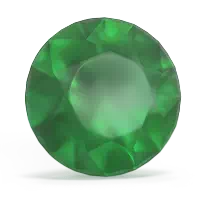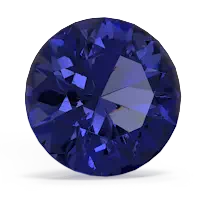

The gemstone is the star in these elegant Emerald solitaire pendants. The birthstone of May, an emerald ring symbolizes the eternally returning spring. The velvety green color of emerald is a perfect match for spring and summer fashions. Sapphire is the birthstone of September, and one of the most popular gemstones on the jewelry scene today. The deep blue color of a sapphire ring is just right for an evening out.